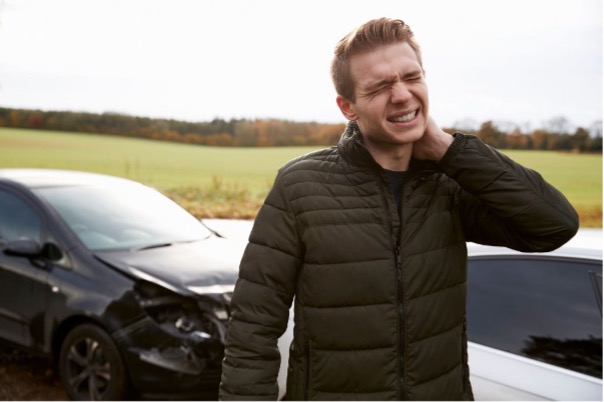Car accidents can be life-changing, not only because of the physical injuries but also due to the psychological toll they often take on survivors. In addition to the visible scars, many victims of car accidents experience deep emotional struggles such as anxiety and depression. These conditions, though less visible, can be just as debilitating and significantly affect one’s quality of life.
For many survivors, the crash isn’t just a momentary event—it can reshape how they view the world. Anxiety and depression often develop slowly, triggered by the stress of injuries, insurance claims, and the loss of independence.
If you’re noticing these feelings, you’re not alone. Seeking help early can make a significant difference. It’s important to contact an experienced car accident lawyer who can help ensure you receive compensation for emotional distress, allowing you to focus on your recovery.
Anxiety: The Invisible Impact
After an accident, anxiety can make everything seem intense. Every honk, every swerve, and every fast-moving vehicle on the road can trigger a wave of panic. The trauma of the accident itself can lead to a fear of driving, or even a fear of being on the road as a passenger. Sometimes, the anxiety becomes generalized, lingering well beyond the crash itself.
Common signs of anxiety after an accident include:
- Panic attacks: Sudden bursts of fear, often accompanied by physical symptoms like sweating, heart palpitations, and dizziness.
- Hypervigilance: A heightened sense of alertness to everything around you, as if your body is constantly in “fight or flight” mode.
- Avoidance behavior: Dreading situations that remind you of the accident, like avoiding the route where the accident took place or hesitating to drive again.
The mental toll can be exhausting—it’s not just about being scared; it’s about living in a constant state of unease.
Depression: When the Weight Feels Too Heavy
If anxiety is the constant hum of fear in the background, depression can feel like the crushing weight that drags you down. The physical aftermath of an accident, like ongoing pain, can contribute to feelings of sadness or hopelessness. For some, depression isn’t just a fleeting feeling—it becomes an emotional state that’s hard to escape.
Symptoms of depression after a car accident might include:
- Persistent sadness or empty feelings.
- Loss of interest in activities that once brought joy, like socializing or hobbies.
- Difficulty concentrating or feeling mentally foggy, as if the emotional weight is blocking any sense of normalcy.
It’s not uncommon for those struggling with depression to feel disconnected from others. The isolation that can result only adds to the burden. In extreme cases, depression can become so overwhelming that it impacts daily functioning—work, relationships, and overall well-being are all affected.
Why It’s Important to Seek Help
Anxiety and depression may not leave visible scars, but their effects can be just as severe as physical injuries. If you’re struggling after an accident, it’s crucial to seek help. Therapy, counseling, and medication are effective ways to manage these conditions.
Additionally, if your emotional distress is linked to the accident, contact a car accident lawyer to explore your legal options and ensure you’re compensated for both physical and emotional damages.
Conclusion
Car accidents are not just about physical injuries. The emotional aftermath is real, and anxiety and depression are common among survivors. If you’re struggling with either of these conditions, don’t ignore them. Reach out for help—whether that’s professional mental health support or seeking legal guidance. Your recovery is just as important as your physical healing. And remember: healing is possible, even from the hardest of experiences.
Help keep news FREE for our readers
Supporting your local community newspaper/online news outlet is crucial now more than ever. If you believe in independent journalism, then consider making a valuable contribution by making a one-time or monthly donation. We operate in rural areas where providing unbiased news can be challenging. Read More About Supporting The West Wales Chronicle
























